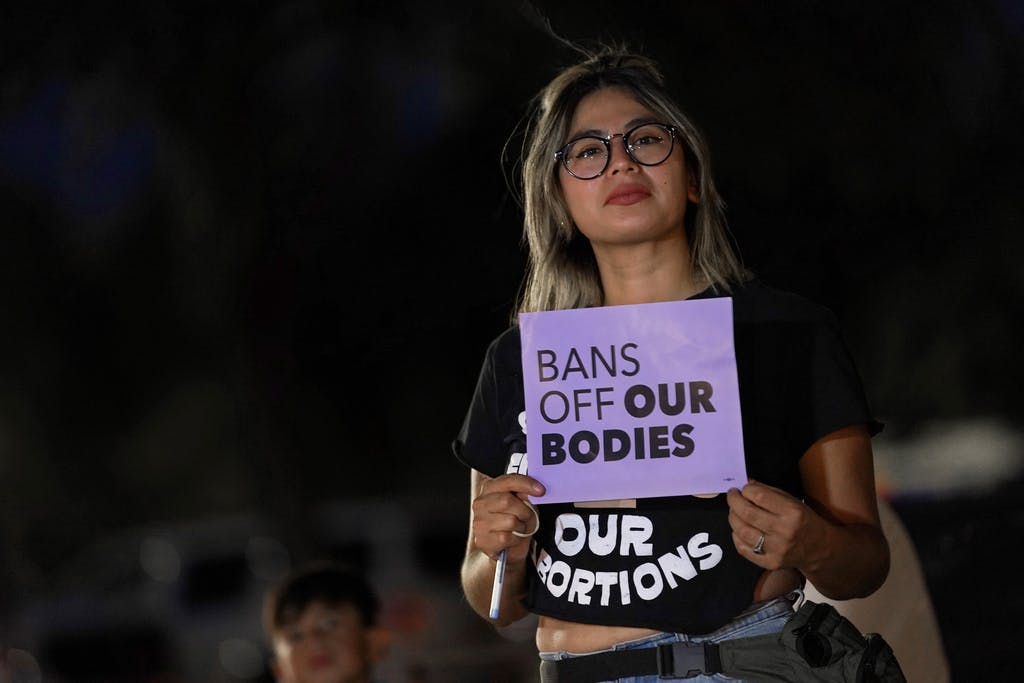Arizona Supreme Court Abortion Ruling Could Tip the Scales in Biden’s Favor in November
Arizona is the latest state to have abortion politics pushed to the forefront by the state’s Supreme Court.

Tuesday, the Arizona Supreme Court upheld an 1864 law banning abortion in the state, overriding the state’s 15-week abortion ban and imposing a prison sentence on women who seek an abortion in the state.
In a four-to-two decision, the state Supreme Court in Arizona ruled that a Civil War-era abortion ban would begin to be enforced in 14 days. The law, which punishes anyone who helps a woman obtain an abortion with between two and five years in prison, has only one exception — for the life of the mother. The ruling effectively overrides a 15-week abortion ban that was signed by Governor Ducey in 2022.
“We defer, as we are constitutionally obligated to do, to the legislature’s judgment, which is accountable to, and thus reflects, the mutable will of our citizens,” Justice John Lopez of the Arizona Supreme Court wrote.
Aside from denying medical care to the state’s residents and throwing the state’s reproductive care system into chaos, it will also likely impact politics in the key swing state.
Since the overturning of Roe v. Wade, abortion has consistently won at the ballot box when it comes up for a popular vote and appears to be in part responsible for a historically good midterm performance for Democrats in 2022.
In Arizona, any boost could tip the state at the presidential level. President Biden carried the state by around 10,000 votes in 2020, accounting for just 0.30 percent of the vote.
Abortion rights may also be on the ballot in Arizona directly in November. The Arizona for Abortion Access campaign announced earlier this month that they had surpassed the number of signatures to put a constitutional amendment on the ballot there this year.
An abortion referendum combined with potential backlash to the reinstituting of a 19th-century law could give Democrats an edge in the state, which has become increasingly pro-abortion rights in recent years.
A 2023 Public Religion Research Institute survey found that some 62 percent of Arizonans thought abortion should be legal in most of all cases while just 7 percent said it should be illegal in all cases.
The director of the University of Virginia’s Center for Politics, Larry Sabato, called the ruling a “Big plus for Biden and Dem Senate candidate Ruben Gallego.”
“Arizona just became a bit less of a swing state this fall. Maybe a lot more than ‘a bit,’” Mr. Sabato said in a tweet.
After the ruling, state Democrats immediately began to condemn the ruling, and state Republicans disowned the court, despite the fact that every justice on the court was appointed by a Republican.
Attorney General Kris Mayes of Arizona called the ruling “unconscionable and an affront to freedom,” adding that she would refuse to prosecute women under the “draconian law.”
“Today’s decision to reimpose a law from a time when Arizona wasn’t a state, the Civil War was raging, and women couldn’t even vote will go down in history as a stain on our state,” Ms. Mayes said.
Courthouse News’s Joe Duhownik also reports that the state’s governor, Katie Hobbs, called on the legislature to repeal the law saying “They can do it today, and they should.”
Mr. Ducey, who served as governor until 2023 and appointed five of the seven justices who issued the ruling, immediately disowned it, saying he signed the 15-week ban because he thought it was a “thoughtful conservative policy.”
“The ruling today is not the outcome I would have preferred, and I call on our elected leaders to heed the will of the people and address this issue with a policy that is workable and reflective of our electorate,” Mr. Ducey said in a tweet.
Arizona is only the most recent state to have abortion politics thrust to the forefront by its judiciary. In Florida last week, the Supreme Court effectively allowed a six-week ban to go into effect while also allowing voters to weigh in on the subject in a referendum in November.
New York and Maryland will also have abortion ballot measures in November, though neither state is considered competitive. In seven states besides Arizona, organizers are working to put an abortion ballot measure on the ballot in the hope that it will lead to higher Democratic turnout. However, Nevada is the only state other than Arizona likely to be competitive statewide in 2024.

